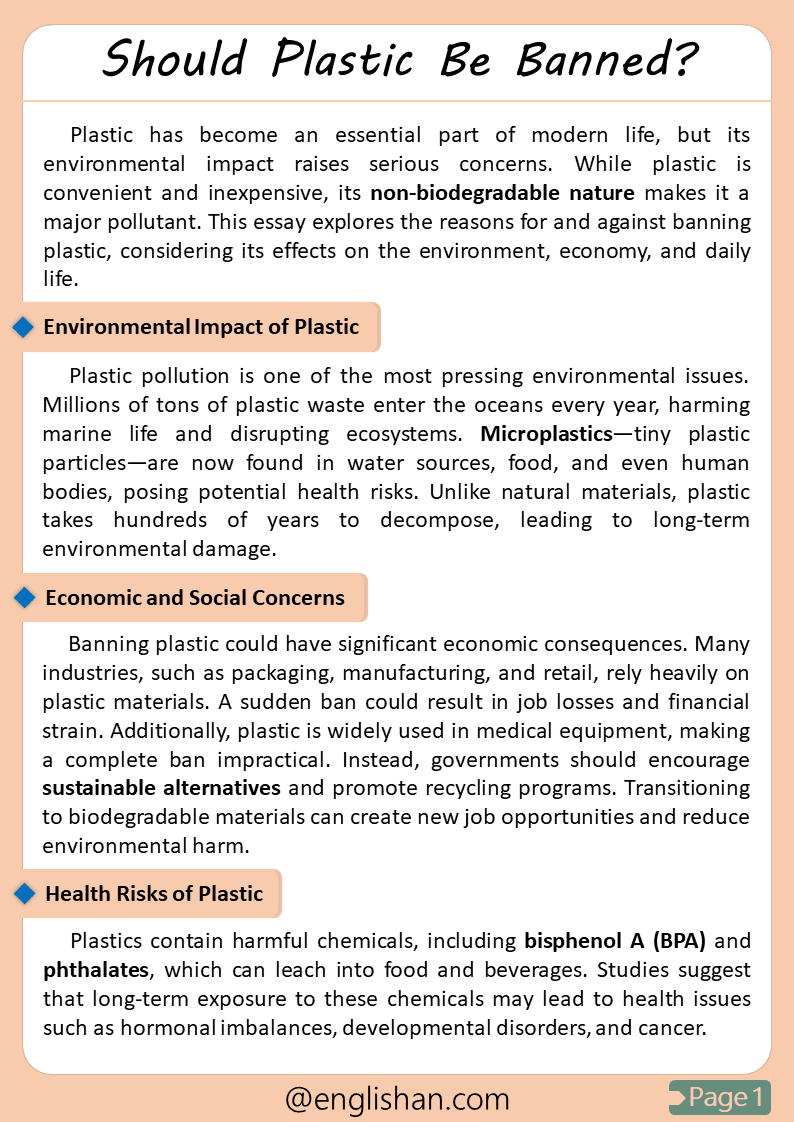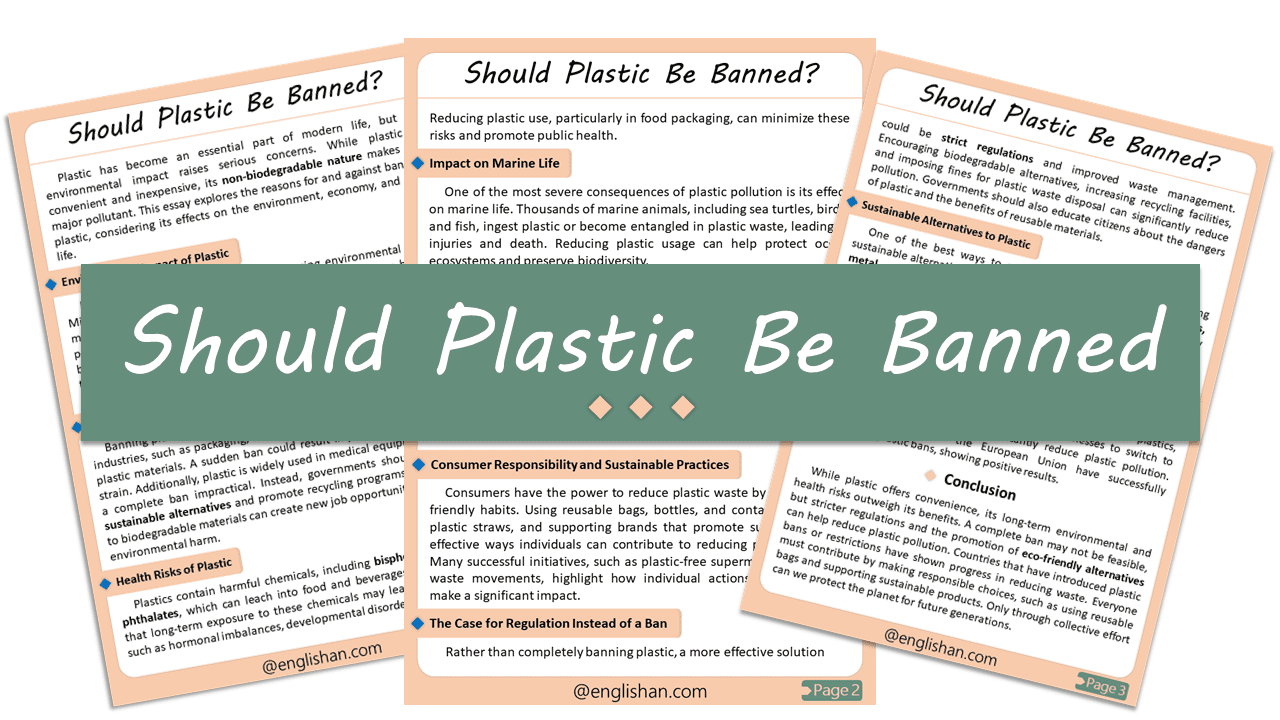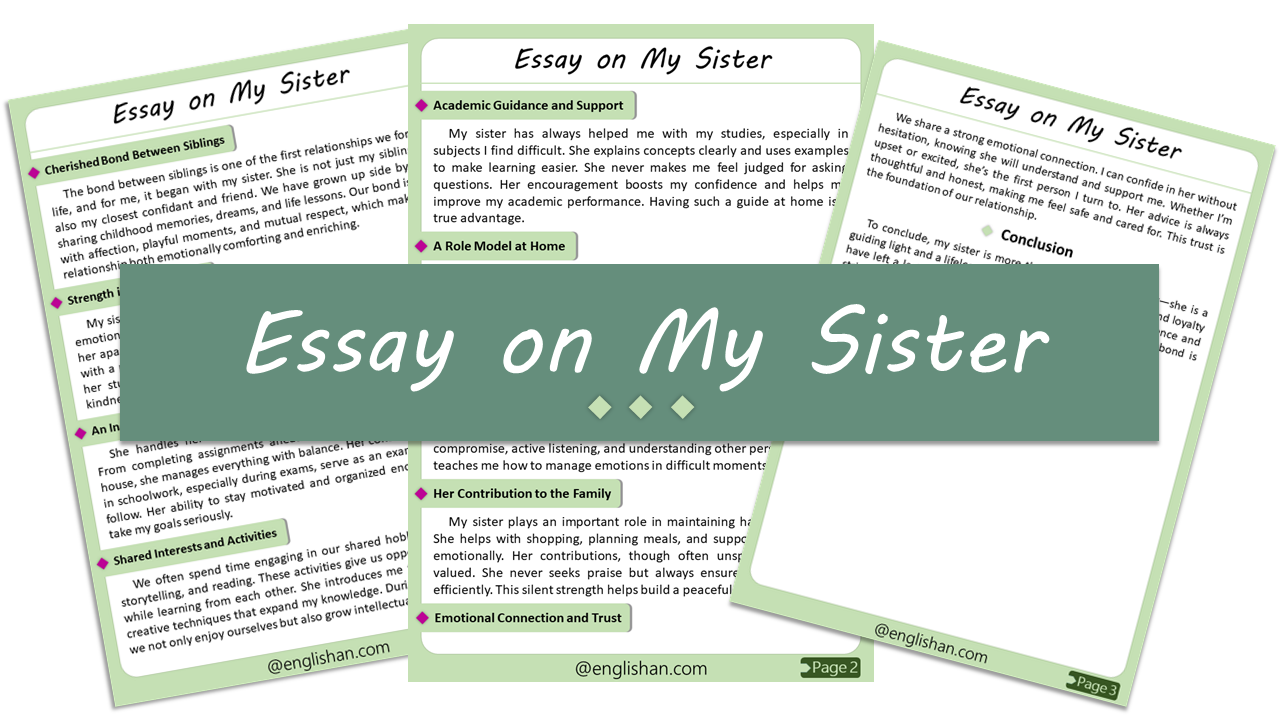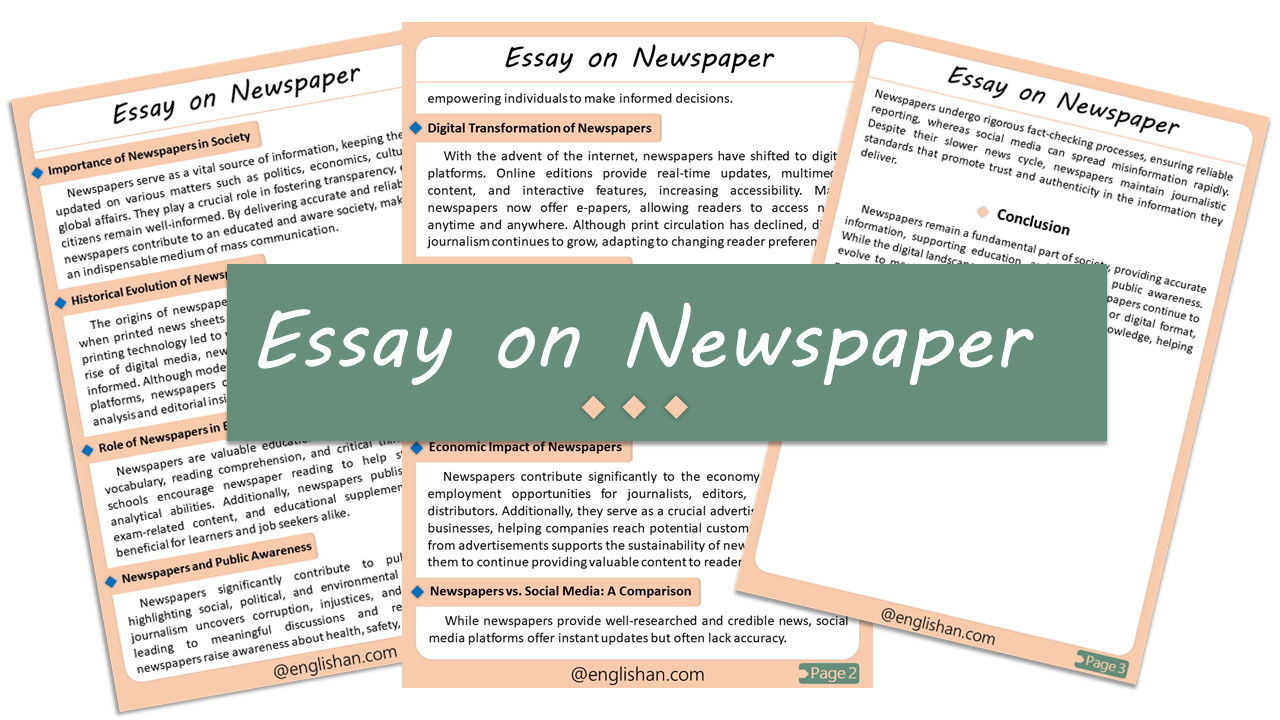When writing about whether plastic should be banned essay, it’s important to understand how plastic is used in daily life, its harmful effects on the environment, and ways to reduce its impact. This essay explains the problems caused by plastic pollution, reasons for banning plastic, the benefits of alternatives, and simple steps to protect nature. It’s written in 500 words to help students with homework or exams. You can download this essay as a free PDF or image to study or print.
10 Lines Should Plastic Be Banned? Essay for Class 2 to Class 5
- Plastic is used in many things like bags and bottles.
- It is cheap and useful but can harm the environment.
- Plastic takes a very long time to decay.
- Many animals get hurt because of plastic waste.
- Some people think plastic should be banned to protect nature.
- Banning plastic can help keep our planet clean.
- People can use paper or cloth bags instead of plastic.
- Recycling plastic can reduce pollution.
- Plastic pollution affects rivers, oceans, and land.
- We should save the Earth by reducing plastic use.

250 Words Essay on Should Plastic Be Banned? for Middle School
Plastic is a material that we use every day in many products such as bags, bottles, and packaging. It is cheap and easy to use, but it has a big problem—it harms the environment. Plastic takes hundreds of years to decompose, which means it stays on Earth for a very long time. This causes pollution in our lands, rivers, and oceans.
Many animals get hurt when they eat or get trapped in plastic waste. Plastic pollution is one of the biggest threats to wildlife and nature. Because of these problems, many people believe that plastic should be banned or reduced to protect the environment.
Banning plastic can help keep our planet clean and safe for future generations. Instead of plastic, people can use eco-friendly alternatives like paper, cloth, or reusable bags. Recycling plastic is also important because it helps reduce the amount of waste that goes to landfills.
However, completely banning plastic is challenging because it is used in many essential items. The best solution is to reduce plastic use, recycle more, and find safer alternatives. Everyone must work together to keep the Earth clean and healthy.
In conclusion, plastic has many harmful effects on the environment, and banning or reducing it is necessary to protect animals, plants, and humans. We should all take steps to use less plastic and care for our planet.
500 Words Should Plastic Be Banned? Essay for Upper Primary and Lower Secondary
Environmental Impact of Plastic
Plastic pollution is one of the most pressing environmental issues. Millions of tons of plastic waste enter the oceans every year, harming marine life and disrupting ecosystems. Microplastics—tiny plastic particles—are now found in water sources, food, and even human bodies, posing potential health risks. Unlike natural materials, plastic takes hundreds of years to decompose, leading to long-term environmental damage.
Economic and Social Concerns
Banning plastic could have significant economic consequences. Many industries, such as packaging, manufacturing, and retail, rely heavily on plastic materials. A sudden ban could result in job losses and financial strain. Additionally, plastic is widely used in medical equipment, making a complete ban impractical. Instead, governments should encourage sustainable alternatives and promote recycling programs. Transitioning to biodegradable materials can create new job opportunities and reduce environmental harm.
Health Risks of Plastic
Plastics contain harmful chemicals, including bisphenol A (BPA) and phthalates, which can leach into food and beverages. Studies suggest that long-term exposure to these chemicals may lead to health issues such as hormonal imbalances, developmental disorders, and cancer. Reducing plastic use, particularly in food packaging, can minimize these risks and promote public health.
Impact on Marine Life
One of the most severe consequences of plastic pollution is its effect on marine life. Thousands of marine animals, including sea turtles, birds, and fish, ingest plastic or become entangled in plastic waste, leading to injuries and death. Reducing plastic usage can help protect ocean ecosystems and preserve biodiversity.
The Role of Governments and Policies
Governments play a crucial role in controlling plastic waste through legislation and policies. Imposing bans on single-use plastics, implementing plastic taxes, and encouraging businesses to switch to biodegradable alternatives can significantly reduce plastic pollution. Countries like India and the European Union have successfully implemented plastic bans, showing positive results. Strict enforcement and public awareness campaigns can further enhance the effectiveness of these measures.
Consumer Responsibility and Sustainable Practices
Consumers have the power to reduce plastic waste by adopting eco-friendly habits. Using reusable bags, bottles, and containers, avoiding plastic straws, and supporting brands that promote sustainability are effective ways individuals can contribute to reducing plastic pollution. Many successful initiatives, such as plastic-free supermarkets and zero-waste movements, highlight how individual actions can collectively make a significant impact.
The Case for Regulation Instead of a Ban
Rather than completely banning plastic, a more effective solution could be strict regulations and improved waste management. Encouraging biodegradable alternatives, increasing recycling facilities, and imposing fines for plastic waste disposal can significantly reduce pollution. Governments should also educate citizens about the dangers of plastic and the benefits of reusable materials.
Sustainable Alternatives to Plastic
One of the best ways to reduce plastic pollution is by adopting sustainable alternatives. Materials such as biodegradable plastics, glass, metal, and paper-based products offer eco-friendly solutions. Many companies are now investing in plant-based plastics and compostable packaging, which decompose faster and cause less harm to the environment.
The Role of Governments and Policies
Governments play a crucial role in controlling plastic waste through legislation and policies. Imposing bans on single-use plastics, implementing plastic taxes, and encouraging businesses to switch to biodegradable alternatives can significantly reduce plastic pollution. Countries like India and the European Union have successfully implemented plastic bans, showing positive results.
Conclusion
While plastic offers convenience, its long-term environmental and health risks outweigh its benefits. A complete ban may not be feasible, but stricter regulations and the promotion of eco-friendly alternatives can help reduce plastic pollution. Countries that have introduced plastic bans or restrictions have shown progress in reducing waste. Everyone must contribute by making responsible choices, such as using reusable bags and supporting sustainable products. Only through collective effort can we protect the planet for future generations.

Difficult Words Used in 500 Should Plastic Be Banned? Essay
| Word | Definition |
|---|---|
| Non-biodegradable | A material that does not break down naturally over time. |
| Microplastics | Small plastic particles that pollute the environment. |
| Sustainable | Capable of being maintained over time without harming the environment. |
| Phthalates | Chemical compounds used to make plastics more flexible. |
| Regulations | Rules set by authorities to control certain activities. |
Should Plastic Be Banned? Essay PDF
You May Also Like






